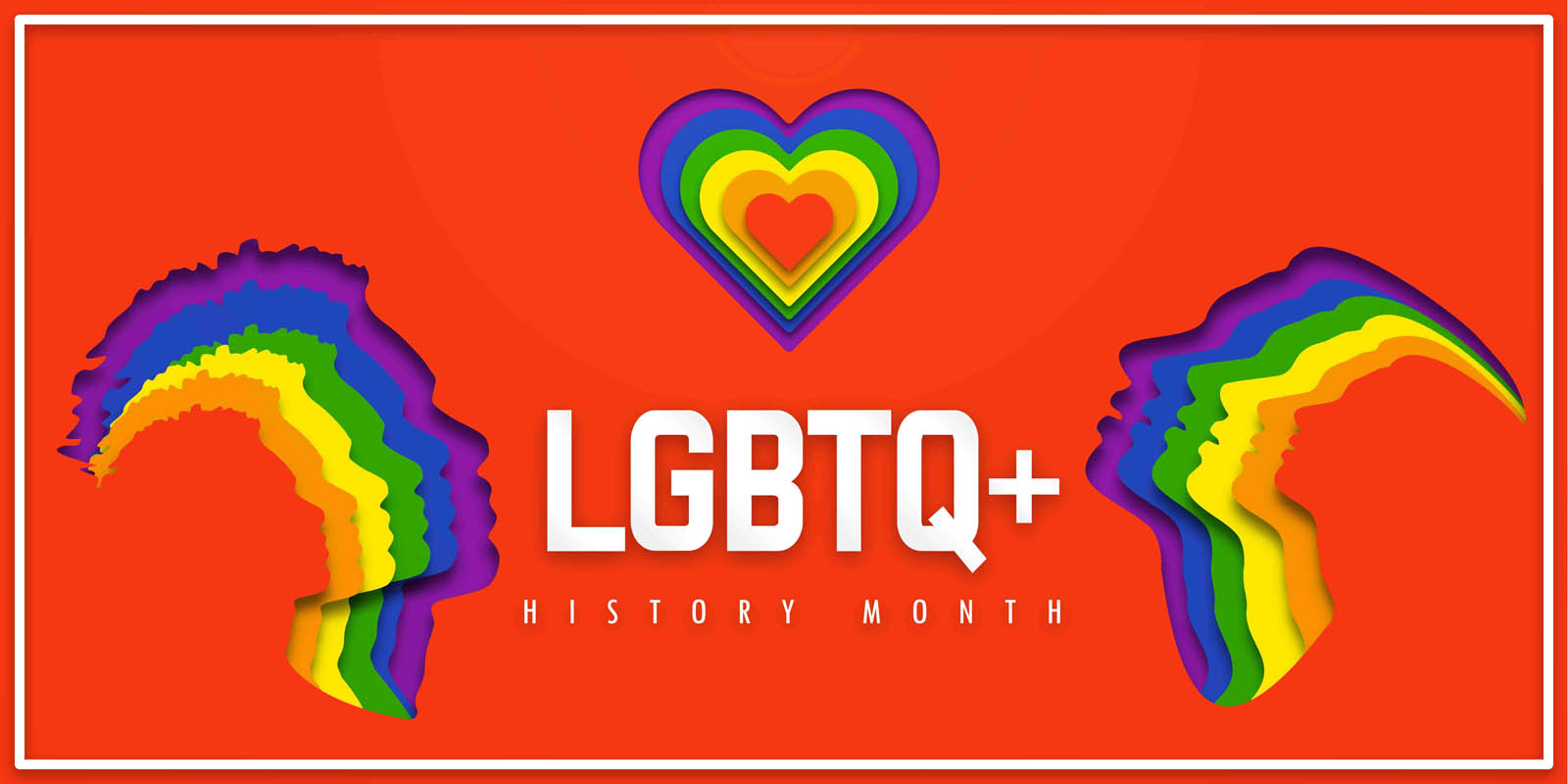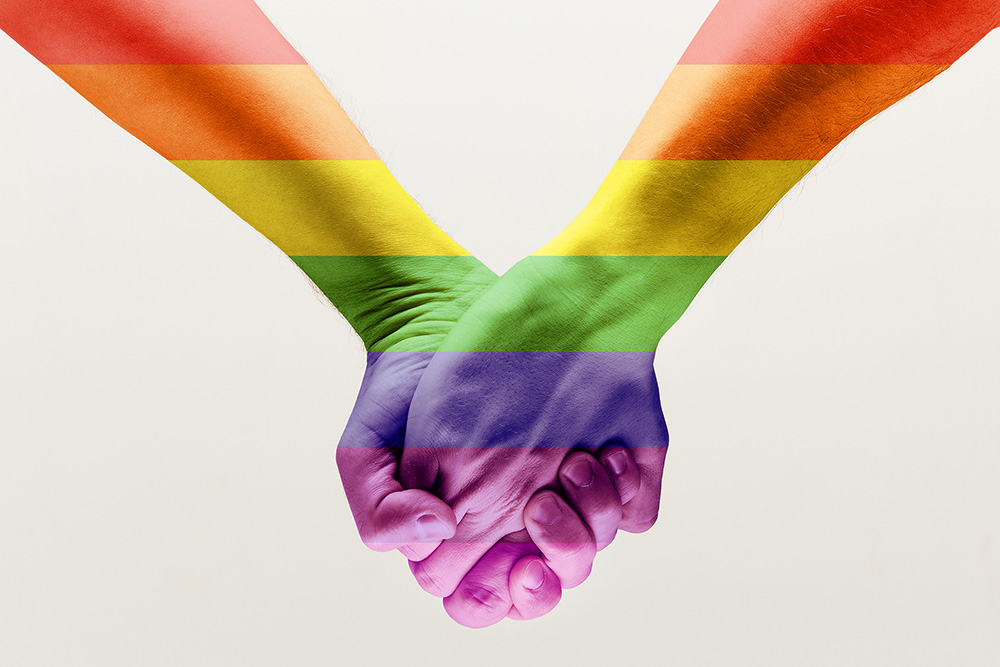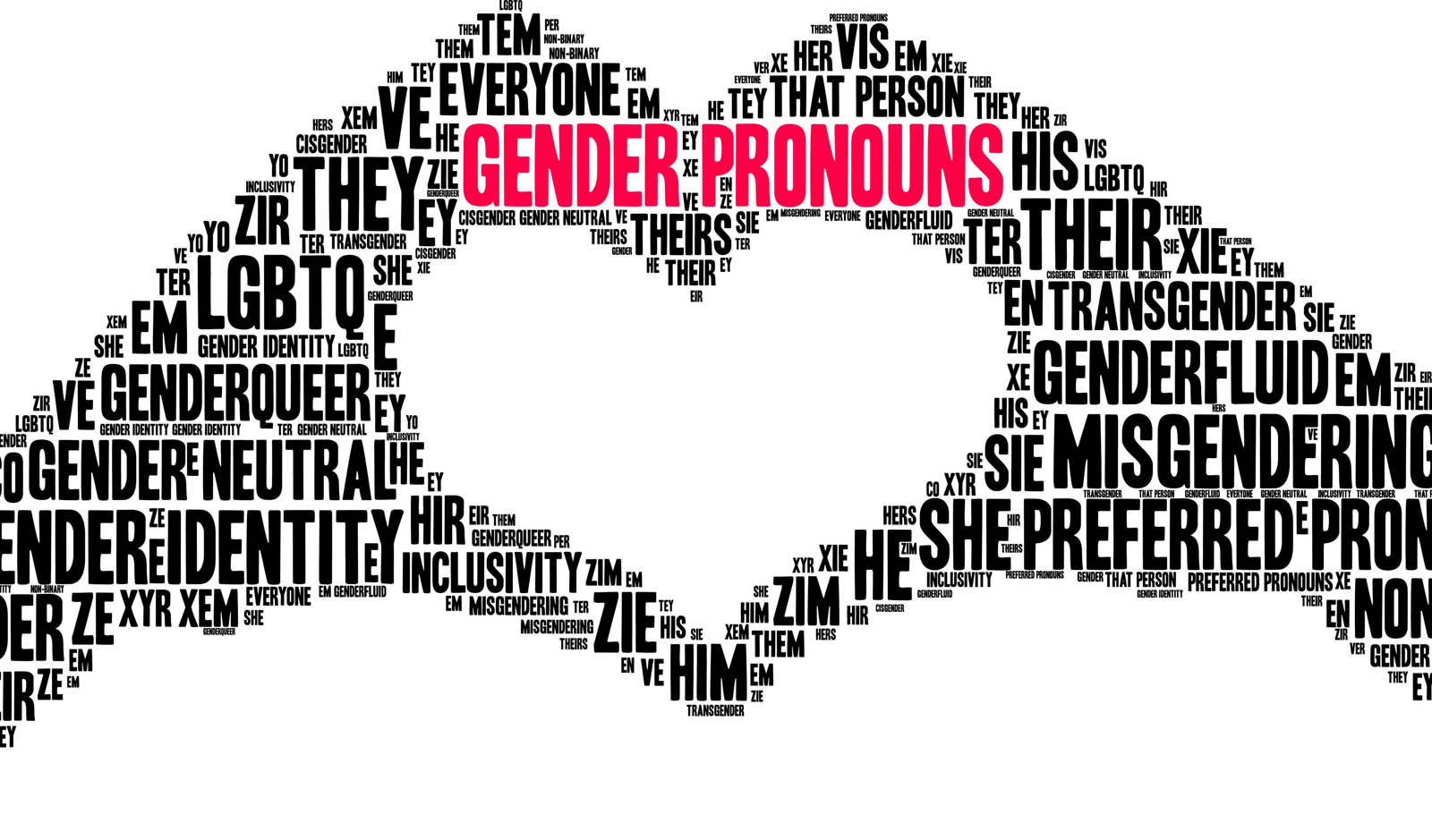
Did you know that October is LGBTQ+ History Month?
Filed Under: LGBTQ+
Anna Rossi
Senior Director, Quantitative Research
When you think about the LGBTQ+ community, the first month that comes to mind is probably June – Pride Month. But October also marks a time for important LGBTQ+ celebrations:
October is LGBTQ+ History Month!
Back in 1994, Rodney Wilson, the first openly gay history teacher at a Missouri public high school, realized that students weren’t learning about the history of LGBTQ+ people or the rights movement. When notable LGBTQ+ people were mentioned, their identities were often ignored. The result: few people understand how deeply woven LGBTQ+ individuals are throughout history and the important marks they have left. To help change that, Wilson started what was then called Lesbian and Gay History Month and served as the founder on the first coordinating committee. The next year, it was officially added to the list of commemorative months in a resolution by the General Assembly of the National Education Association.

LGBTQ+ History Month has garnered more attention in the United States over the years and in 2012 was officially celebrated in two American school districts: Broward County in Florida and Los Angeles, California. And, in Canada and Australia, it is also celebrated in October, whereas in. Hungary and the UK, it’s recognized in February, and in Berlin, in May. Anywhere LGBTQ+ History Month is celebrated, the purpose is to encourage learning and to encourage honesty and openness about being LGBTQ+.
Most people think of the Stonewall Riots in June, but Wilson intentionally chose October for LGBTQ+ History Month because there are some other important historical events that took place during that month.
- The first and second Marches on Washington for Lesbian and Gay Rights took place in October 1979 and 1987. These marches aimed to ban discrimination based on sexual orientation in the military, federal jobs, and family protection laws. While these goals have only recently been achieved, the marches successfully established a large network of members across the country, unifying the community around common priorities, and forced the country to realize how many LGBTQ+ people and allies are in the US.
- The National Coming Out Day is celebrated on October 11 – the same day as the second March on Washington for Lesbian and Gay Rights. National Coming Out Day was originally started by Rob Eichberg and John O’Leary. They believed that it was crucial for members of the LGBTQ+ community to ‘come out’ because not only did it show how many people identify as LGBTQ+, but it also showed that most people already know someone in the LGBTQ+ community. And people who know someone who is LGBTQ+ are far more likely to support equality for people in the community.
So, while there might not be a big rainbow parade in your city for LGBTQ+ History Month, there are still a lot of ways to celebrate! Here are some ideas to get you started:
- Learn about LGBTQ+ History.
- Every year, the Equality Forum selects 31 LGBTQ+ icons from all over the world, throughout history, and highlights one a day throughout October. You can check out their list here. The HRC also honors people who helped pave the way for LGBTQ+ rights – you can learn more about QTBIPOC (Queer and Trans Black, Indigenous, People of Color) leaders, LGBTQ+ athletes, and LGBTQ+ creators on their website.
- When you’re scrolling through your favorite streaming service trying to decide what to watch, check out stories about real LGBTQ+ people and historical events. Some great documentaries include:
- Disclosure (Netflix),
- A Secret Love (Netflix),
- Paris Is Burning (Max/Amazon Prime Video),
- The Celluloid Closet (Tubi),
- The Death and Life of Marsha P. Johnson (Netflix),
- Transhood (Max),
- Pride To Be Seen (Disney Plus), and
- PRIDE (Hulu).
- If you prefer dramas, here are some based on true LGBTQ+ stories:
- Milk (Max),
- The Imitation Game (Amazon Prime Video),
- Freeheld (YouTube),
- Bohemian Rhapsody (Hulu),
- Rocketman (YouTube),
- The Danish Girl (YouTube), and
- Professor Marston and the Wonder Woman (Tubi).
- Share what you learn! Kids still don’t learn enough about LGBTQ+ history in schools. In some states, parents are required to be notified if there are any LGBTQ+-inclusive curricula and are allowed to opt their child out of learning about the subject. In others, it’s actually illegal to have any discussion about LGBTQ+ identities or sexualities in the school curriculum. Share what you learn with your kids, family, and friends to help spread accurate information and let them know it’s okay to talk to you about the LGBTQ+ community.
- Celebrate National Coming Out Day (October 11th) – Coming out isn’t the only way to celebrate. Share your support for people who come out (either public figures or people in your personal life). Even today, coming out can be scary for some people as they may be risking the loss of relationships, family support, financial support, or their jobs. Supporting and celebrating out LGBTQ+ people will help any LGBTQ+ people in your personal life know that you’re a safe person to come out to.
- Celebrate International Pronouns Day (October 18th). Consider sharing your gender pronouns. Many people, both in the LGBTQ+ community and allies, are sharing their pronouns through their email signatures and on social media profiles. Sharing your pronouns and being open to conversations around gender and identity help normalize these discussions and create a welcoming and inclusive environment for all. Learn more about best practices for sharing and using pronouns here.

- Celebrate LGBTQ+ Spirit Day (October 19th). On the third Thursday in October, wear purple in support of LGBTQ+ youth. You may also see brands changing their logos to purple and sharing information and resources to help spread awareness. LGBTQ+ youth are more likely to be bullied and harassed because of their identities. This day was started to show support for LGBTQ+ youth as a response to a series of bullying-related suicides of gay students like Tyler Clementi. Learn more about the bullying and harassment LGBTQ+ youth face every day and how you can show support here.
Supporting the LGBTQ+ community is about more than putting a rainbow on your products and tweeting about Pride in June. As with any multicultural cohort, showing genuine respect and understanding of their struggles and achievements is essential for authentically resonating with the LGBTQ+ community. Take the effort to learn about their history and help encourage others to do so. You’ll come away with a greater appreciation for the LGBTQ+ community.
LGBTQ+ History Month originated in schools because students weren’t learning about the history of LGBTQ+ people or the LGBTQ+ rights movement. The idea was that educating students about LGBTQ+ history and people would lead to less fear, more acceptance, and help LGBTQ+ people (students and adults) feel comfortable being their authentic selves.
Although that was 29 years ago, these same aims are even more relevant today as people continue to embrace who they are and want others to do the same.
Over the past couple of years, LGBTQ+ rights have been under attack, and unfortunately, the classroom is one of the battlegrounds. In March 2022, Florida passed a law, commonly known as the “Don’t Say Gay” law, which censors discussions about LGBTQ+ identities, families, or issues and inclusive gestures by teachers, such as hanging up a Pride flag in the classroom. While Florida has perhaps gathered the most attention, there are 11 states with these laws in the books and another two that require parent notification of LGBTQ+-inclusive curricula which allows parents to opt their children out of learning about this subject matter. In fact, only seven of our 50 states explicitly require LGBTQ+ inclusion in state curricular standards.
These laws prohibit even acknowledging that LGBTQ+ people exist: a woman who marries a man can change her last name, go by Mrs. instead of Ms., and talk about her husband in the classroom, but a woman who marries another woman can’t mention her wife; a cisgender teacher can say they’re a man, but a transgender teacher cannot.
It’s still radical to exist as an LGBTQ+ person, especially if you’re transgender, so education is just as important today as it was 29 years ago. We hope you’ll join C+R and its CultureBeat team in learning more about, talking about, and fighting for the LGBTQ+ community, especially the children in your life – they’re the future.
“If you think education is expensive, try ignorance.” — Andy McIntyre
To hear first-hand about how the LGBTQ+ community feels about their rights and how they are under attack, watch the video below from our Consumer Connection Series. If you want to learn more about what’s in the hearts and minds of the dynamic LGBTQ+ Community, check out our 3-Part Consumer Connections Series, Amplifying the Voice of the LGBTQ+ Community.
explore featured
Case studies

